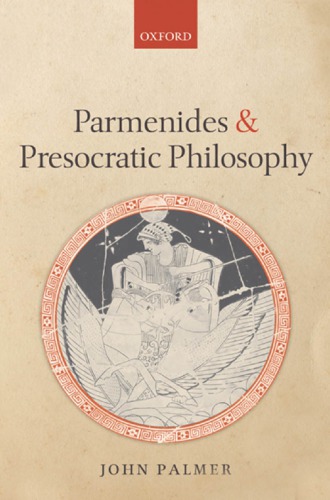

Most ebook files are in PDF format, so you can easily read them using various software such as Foxit Reader or directly on the Google Chrome browser.
Some ebook files are released by publishers in other formats such as .awz, .mobi, .epub, .fb2, etc. You may need to install specific software to read these formats on mobile/PC, such as Calibre.
Please read the tutorial at this link. https://ebooknice.com/page/post?id=faq
We offer FREE conversion to the popular formats you request; however, this may take some time. Therefore, right after payment, please email us, and we will try to provide the service as quickly as possible.
For some exceptional file formats or broken links (if any), please refrain from opening any disputes. Instead, email us first, and we will try to assist within a maximum of 6 hours.
EbookNice Team

Status:
Available4.5
33 reviews
ISBN 10: 0199567905
ISBN 13: 9780199567904
Author: John Anderson Palmer, Parmenides Eleates
John Palmer develops and defends a modal interpretation of Parmenides, according to which he was the first philosopher to distinguish in a rigorous manner the fundamental modalities of necessary being, necessary non-being or impossibility, and non-necessary or contingent being. This book accordingly reconsiders his place in the historical development of Presocratic philosophy in light of this new interpretation. Careful treatment of Parmenides' specification of the ways of inquiry that define his metaphysical and epistemological outlook paves the way for detailed analyses of his arguments demonstrating the temporal and spatial attributes of what is and cannot not be. Since the existence of this necessary being does not preclude the existence of other entities that are but need not be, Parmenides' cosmology can straightforwardly be taken as his account of the origin and operation of the world's mutable entities. Later chapters reassess the major Presocratics' relation to Parmenides in light of the modal interpretation, focusing particularly on Zeno, Melissus, Anaxagoras, and Empedocles. In the end, Parmenides' distinction among the principal modes of being, and his arguments regarding what what must be must be like, simply in virtue of its mode of being, entitle him to be seen as the founder of metaphysics or ontology as a domain of inquiry distinct from natural philosophy and theology. An appendix presents a Greek text of the fragments of Parmenides' poem with English translation and textual notes.
1 Parmenides’ Place in Histories of Presocratic Philosophy
Historical Narrative and Aristotle’s Influence
The Development of Early Greek Philosophy in Guthrie’s Narrative
Advances in Parmenides Interpretation and Modifications of Guthrie’s Narrative
Fundamentals of the Ancient View of Parmenides
Prospectus for a Modal Reading of Parmenides
2 Parmenides’ Three Ways
Parmenides Goes to the Halls of Night
‘The Only Ways of Inquiry…’
The Russellian Line
A Modal Interpretation of Parmenides’ Ways of Inquiry
3 The Way of the Goddess and the Way of Mortals
Fragment 6: Instructions and Admonition
Fragment 3: The Availability of What Is for Understanding
Fragment 7: Further Admonition
Parmenidean Being
4 What Must Be and What Is and Is Not
The Way of Conviction
The Cosmology
The Co-Presence of What Is and What Is and Is Not
5 Zeno, Melissus, and Parmenides
Zeno and Parmenides
Melissus and Parmenides
Melissus as an Eristic
6 Anaxagoras and Parmenides
Anaxagoras and his Physical Theory
Anaxagoras and the Principle of No Becoming
Anaxagoras and Zeno
Anaxagoras and Parmenides: The True Correspondence
7 Empedocles’ Element Theory and Parmenides
Empedocles’ Cosmology
Parmenides’ Purported Influence
Empedocles’ Roots as a ‘Plurality of Parmenidean Beings’
Empedocles’ Cosmology and Parmenides’ Cosmology
8 Parmenides’ Place in Presocratic Philosophy
Parmenides in Retrospect
Xenophanes, Parmenides, Empedocles
Parmenides and the Milesians
Parmenides and Heraclitus
Conclusion
Appendix: The Fragments of Parmenides’ Poem
Introduction
Text of the Fragments
Text and Translation of the Fragments
Textual Notes
Bibliography
parmenides' philosophy summary
parmenides books
parmenides philosophy explained
according to parmenides
parmenides pdf
parmenides book
Tags: John Anderson Palmer, Parmenides Eleates, Parmenides, presocratic